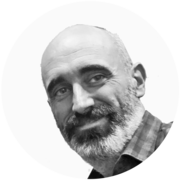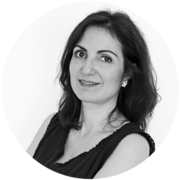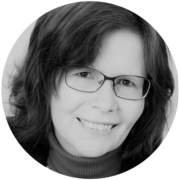Guest Researchers
Alessio Betrone
Ludwig Maximilian Breuer
Isabella Flucher

Enric Senabre Hidalgo
Enric Senabre Hidalgo works on co-design and Agile frameworks for research processes and for the development of digital Commons at the Dimmons Research Group (Internet Interdisciplinary Institute – UOC). Member of the Platoniq collective, co-founder and project manager at the platform Goteo.org for civic crowdfunding, Enric has been vice-president of the Observatory for CyberSociety and associated professor of Software Studies at the Open University of Catalonia, where he holds a Master’s Degree in the Information and Knowledge Society. He collaborates with exploration space at ACDH in co-creation methodologies for transdisciplinary participation in research.

Christina Katsikadeli
Christina Katsikadeli studied German and Greek language and philology as well as general and historical linguistics (Indo-European studies) at the National and Kapodistrian University of Athens, Greece, and at the University of Salzburg, Austria. Since 2000, she has worked as a pre- and postdoctoral researcher, lexicographer, and lecturer in general and historical-comparative linguistics at the Department of Linguistics and at the Center for the Research of Eastern Christianity (ZECO), University of Salzburg, Austria. For nine years, she has been co-worker and project leader (2000-2009) at the ‘Rig Veda Dictionary (RIVELEX, Vols. I-III)’ funded by the Austrian Research Fund (FWF). For the period 2014-2018, she was the principal investigator (“Elise-Richter-Fellow”) of the FWF-project ‘Hellenistic Koine in Egypt and the Near East’. For the coming three years (2018-2021), she will work closely with the ACDH on the design and the compilation of Greek and Latin lemmata (in TEI) at the ‘Digital Dictionary of Loanwords in the Midrash Genesis Rabbah’ (also funded by the FWF).

Maja Kelić
Maja Kelić is a guest researcher within the JESH Program (Joint Excellence in Science and Humanities) of the Austrian Academy of Sciences at its Austrian Centre for Digital Humanities and at the Department of Linguistics of the University of Vienna. She got her Master Degree in Speech and Language Pathology at the University of Zagreb where she also gained her PhD in Language and Cognitive Neuroscience. She is employed at the SUVAG Polyclinic in Zagreb and involved in scientific projects of the Laboratory for Psycholinguistic Research of the University of Zagreb. She is especially interested in development of phonology and phonological deficits in language and reading disorder. Her visiting period In Vienna focuses on acquisition and processing aspects of morphonotactics and phonotactics of Croatian based on the Croatian Web Corpus and relying upon previous work within Prof. Dressler’s ANR&FWF project at the ACDH and by his international partners.
Agnes Kim

Katharina Korecky-Kröll
Katharina Korecky-Kröll is a linguist with a focus on digital linguistics, psycholinguistics and sociolinguistics. Her main area of research is German in Austria on the basis of spoken and written corpora. She is particularly interested in linguistic variation, especially in areal-horizontal, social-vertical, inter- and intra-individual variation of German morphology and pragmatics. She was part of the ICLTT and the ACDH and is currently a postdoc researcher in the SFB German in Austria (DiÖ): Variation - Contact - Perception (FWF F60) at the Department of German Studies of the University of Vienna. She collaborates with several researchers of the ACDH-CH on various aspects of corpus linguistics, psycholinguistics and sociolinguistics.
Dominik Mikl

Kevin Rudolf Perner
Kevin Rudolf Perner is a linguist working on acquisition of German as a second language (GSL) in the context of the “Dialect-Standard-Continuum”. His PhD project deals with the informal acquisition of GSL by refugees at their place of employment as apprentices in Upper Austria. He is also very active in working on variation of German in the context of schooling.
Currently he works at the German department (GSL section) of the University of Vienna. 2016 – 2018 he was professor (ph 2) for GSL at Pädagogische Hochschule / Pedagogical University Niederösterreich in Baden. He also worked more than 10 years as a teacher for GSL in youth and adult education.

Jutta Ransmayr
Ass.-Prof. Jutta Ransmayr currently works in the German department and Centre for teacher education at the University of Vienna, where she works in the field of German language didactics, language variation in the teaching context and corpus linguistics. She studied English and American studies, history and German as a foreign language at the University of Vienna, where she did her PhD in applied linguistics. She was part of the ICLTT (Institute of Corpus Linguistics and Text Technology) before joining the ACDH in 2015, where she deals primarily with research and networking activities in the realm of Austrian Standard German and corpus data acquisition (e.g. Austrian Media Corpus). She is an Austrian representative in the Council for German Orthography and one of Austria´s delegates in the EFNIL (European Federation of National Institutions for Language).

Jutta Ransmayr
Ass.-Prof. Jutta Ransmayr currently works in the German department and Centre for teacher education at the University of Vienna, where she works in the field of German language didactics, language variation in the teaching context and corpus linguistics. She studied English and American studies, history and German as a foreign language at the University of Vienna, where she did her PhD in applied linguistics. She was part of the ICLTT (Institute of Corpus Linguistics and Text Technology) before joining the ACDH in 2015, where she deals primarily with research and networking activities in the realm of Austrian Standard German and corpus data acquisition (e.g. Austrian Media Corpus). She is an Austrian representative in the Council for German Orthography and one of Austria´s delegates in the EFNIL (European Federation of National Institutions for Language).

Silvia Stoyanova
Silvia Stoyanova is a literary scholar specializing in modern Italian literature, in particular the works of Giacomo Leopardi. She has conducted research and taught in the USA (Columbia University, Princeton University), Germany (Uni Trier), and Italy (University of Macerata). At Princeton, she initiated the creation of a Digital Research Platform for the Zibaldone, Leopardi’s large collection of research fragments.
At the ACDH, Silvia is working within the exploration space to expand the research framework of the Zibaldone Platform into a networked, multi-modal, participatory knowledge environment. She will explore how semantic web technologies and knowledge visualization methods could help with the challenges of discourse organization in the scholarly fragment genre, and, conversely, how the design of a digital platform for the study of research notes and their epistemic practices could augment interpretation processes in humanities scholarship.

Sayuri YOSHIDA
Sayuri Yoshida is a visiting researcher with the Fund for the Promotion of Joint International Research (Fostering Joint International Research (A)) by the Japan Society for the Promotion of Science (JSPS). She works on the project “Establishing digital archives for the preservation, utilization and sharing of the collections of Friedrich Julius Bieber” at the ACDH.
Yoshida has an MA in Cultural Anthropology from Nanzan University and PhD in Cultural Anthropology from Nagoya University. She was a designated Assistant Professor at the Institute for Advanced Research, Nagoya University from 2014-2017 and has been Associate Professor of Department of Global Liberal Studies, Nanzan University, Japan.
Since 2004, she has been conducting extensive fieldwork in Southwest Ethiopia. In 2014, she began an archival research on the Friedrich Julius Bieber collections. Her focus of interest lies in how people regard and represent their own history and culture, and how such representations influence their historical views and identity today. Yoshida’s work and publications were rewarded with the 20th Takashima Prize of Japan Association for Nilo-Ethiopian Studies and the 27th Young Researcher’s Award of Japan Association for African Studies.